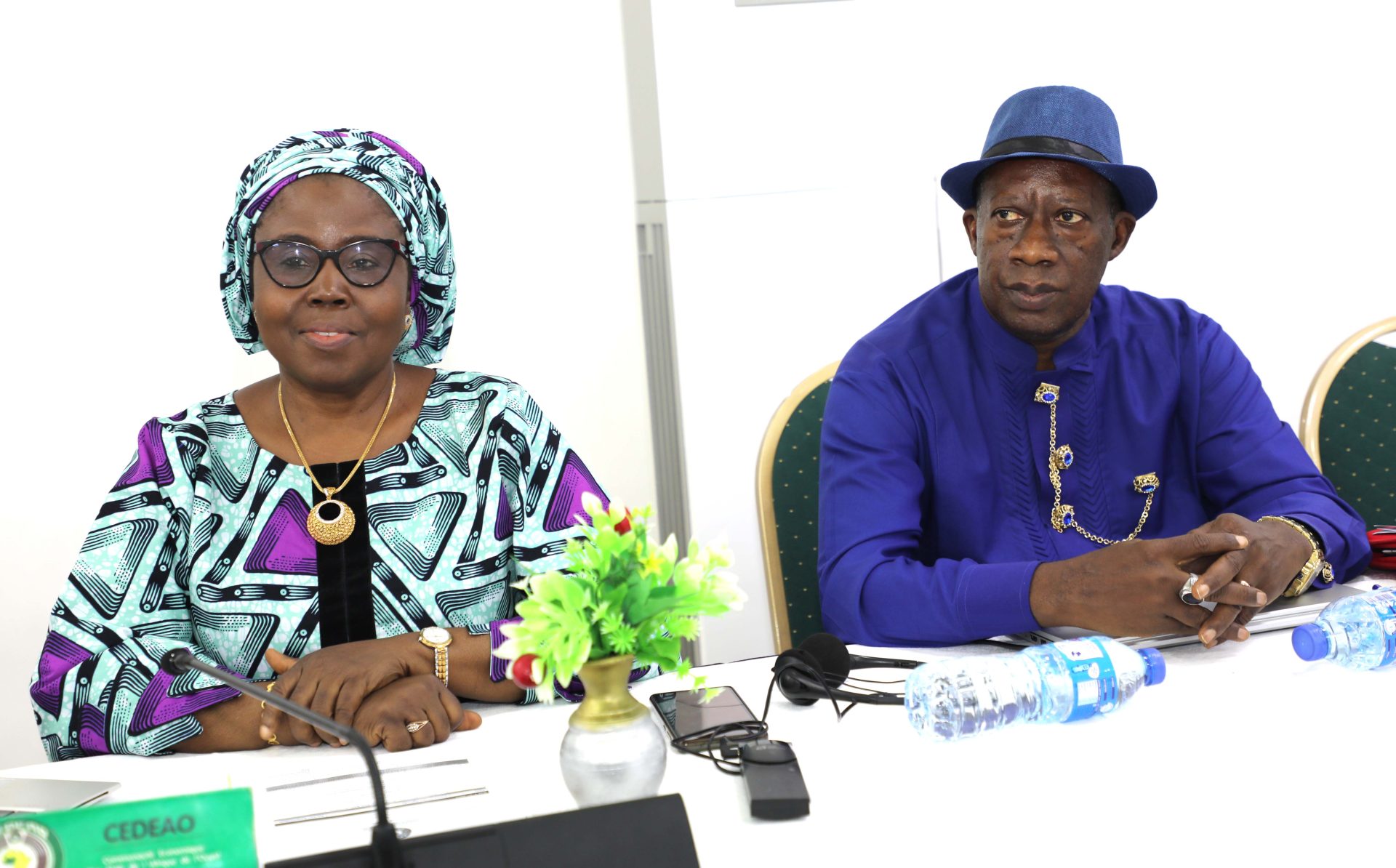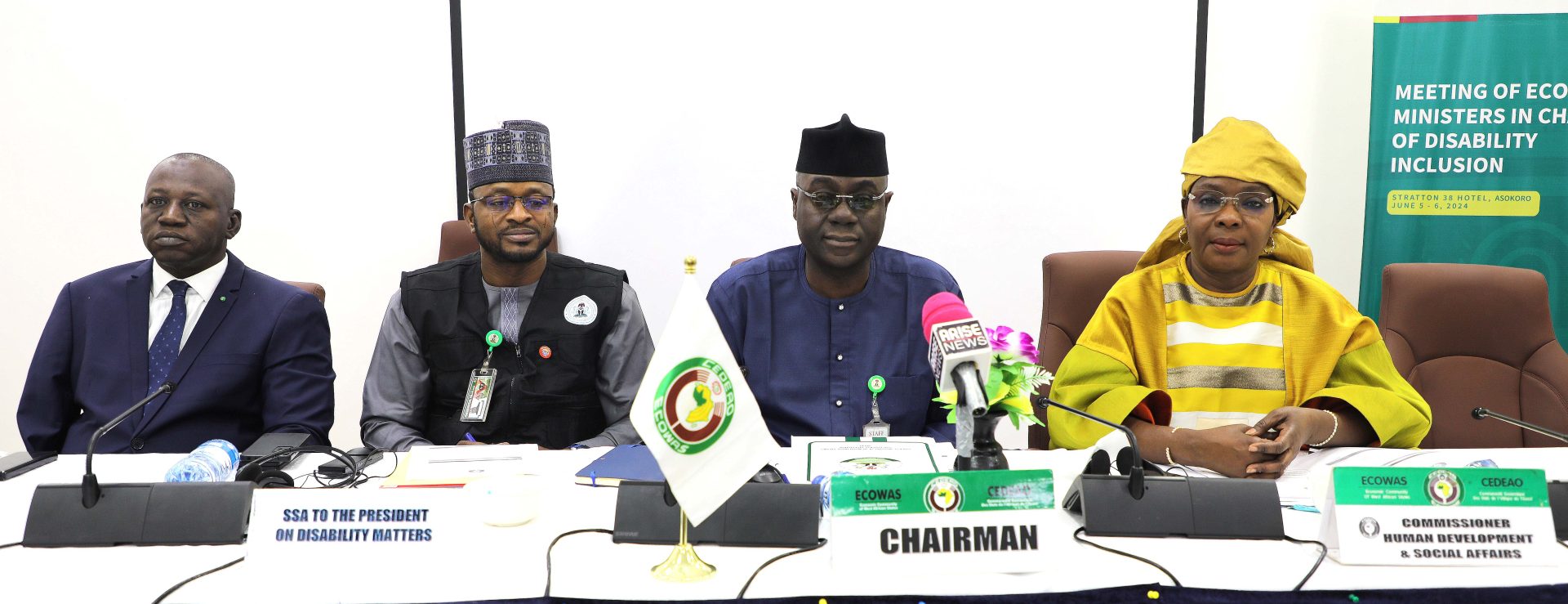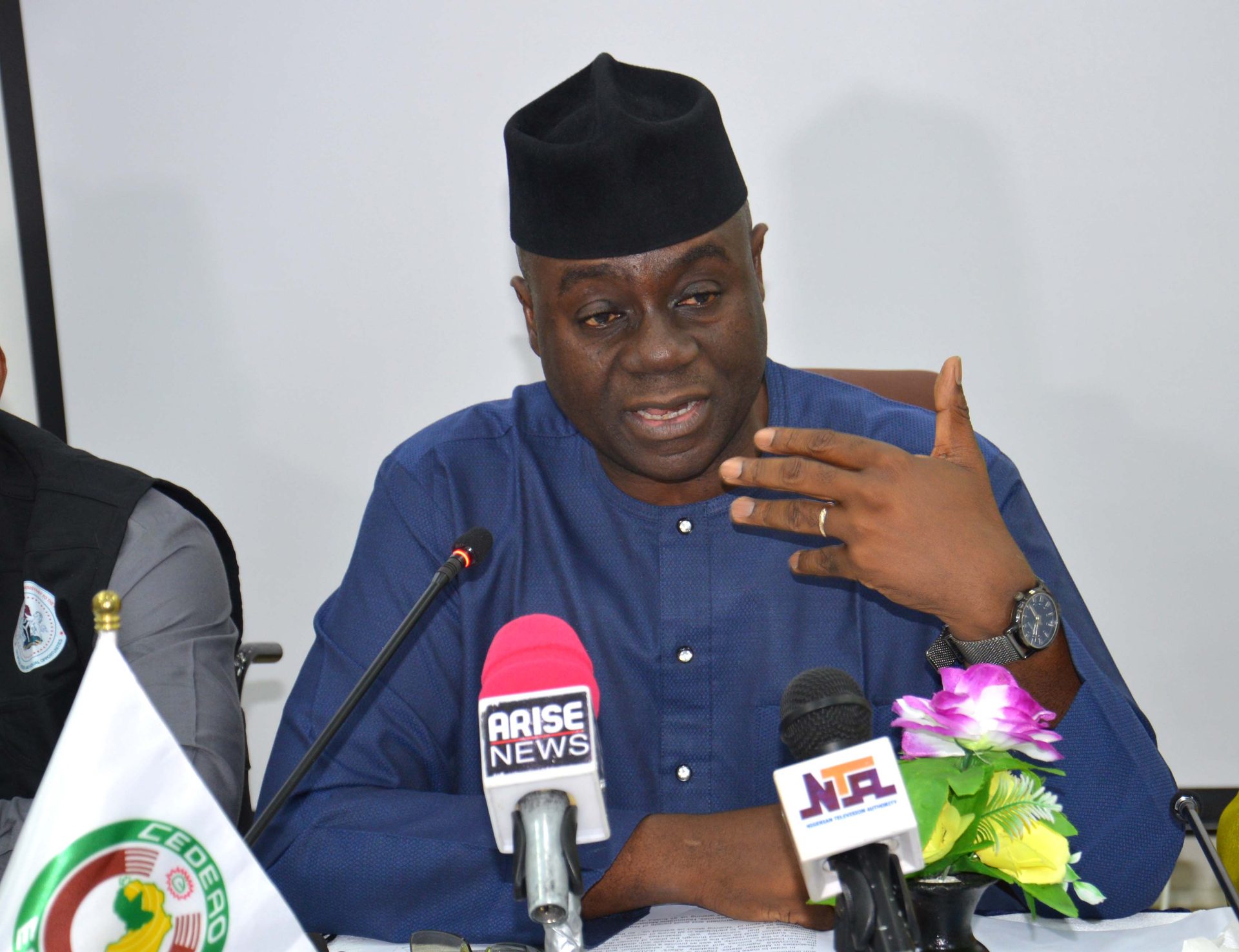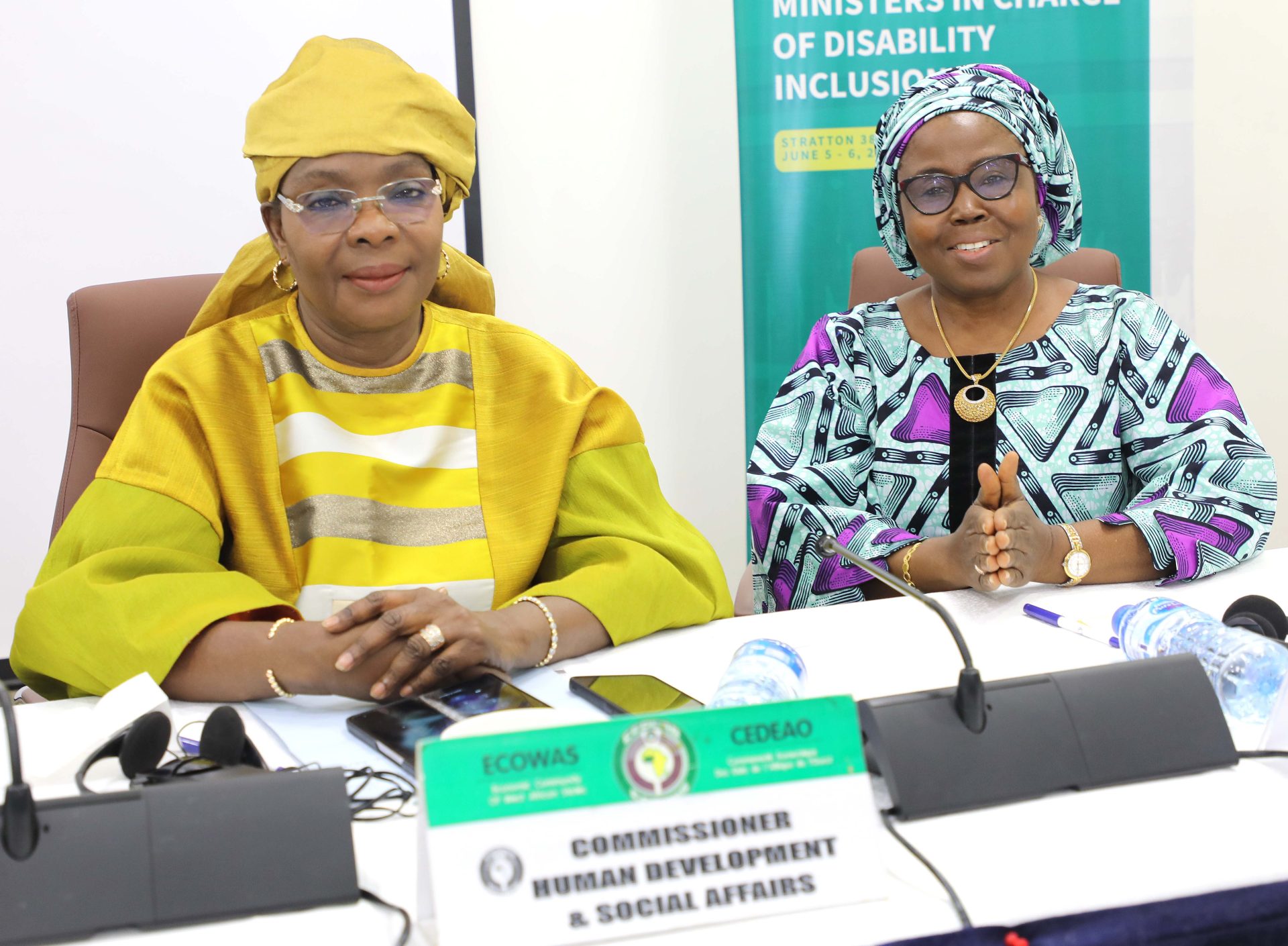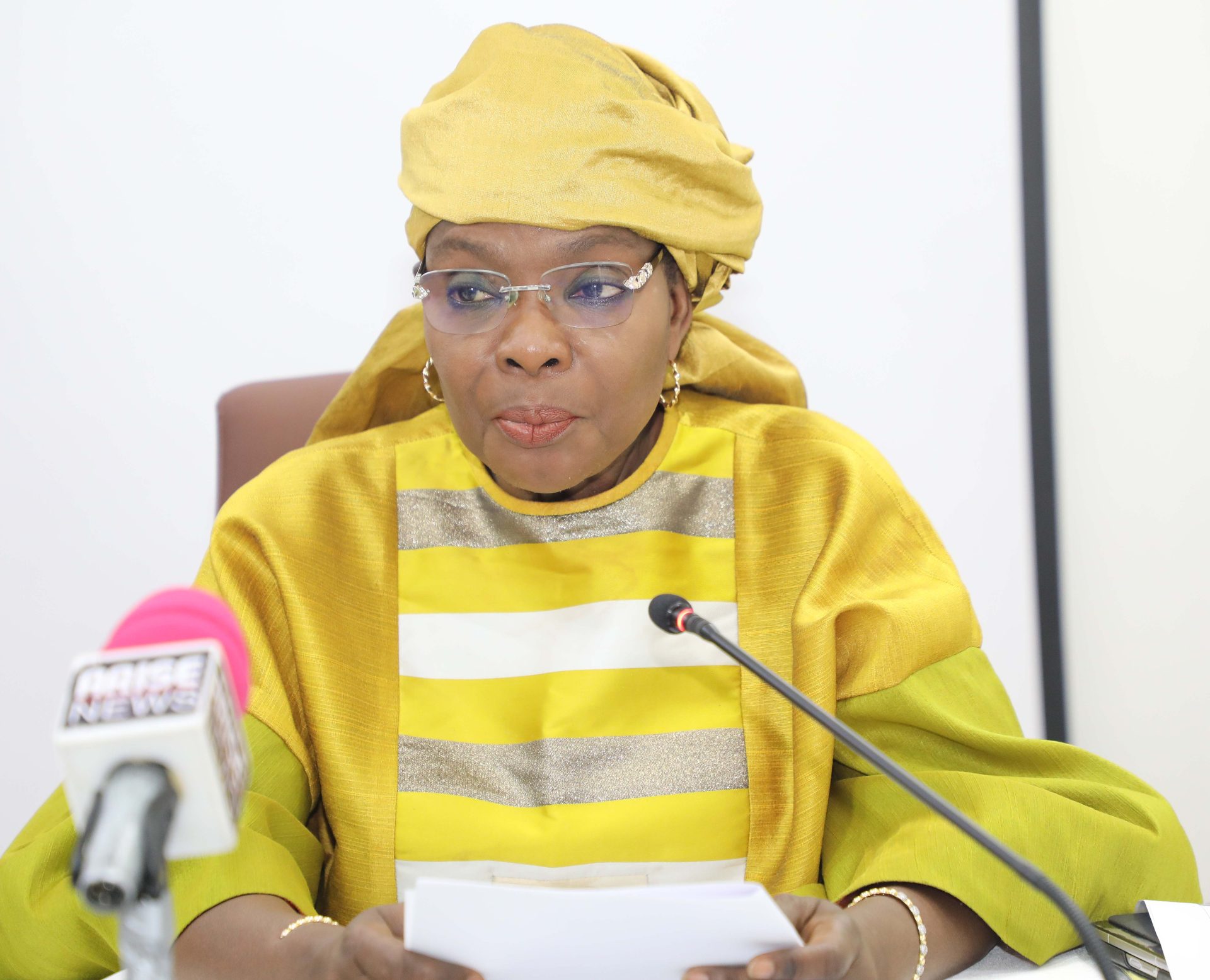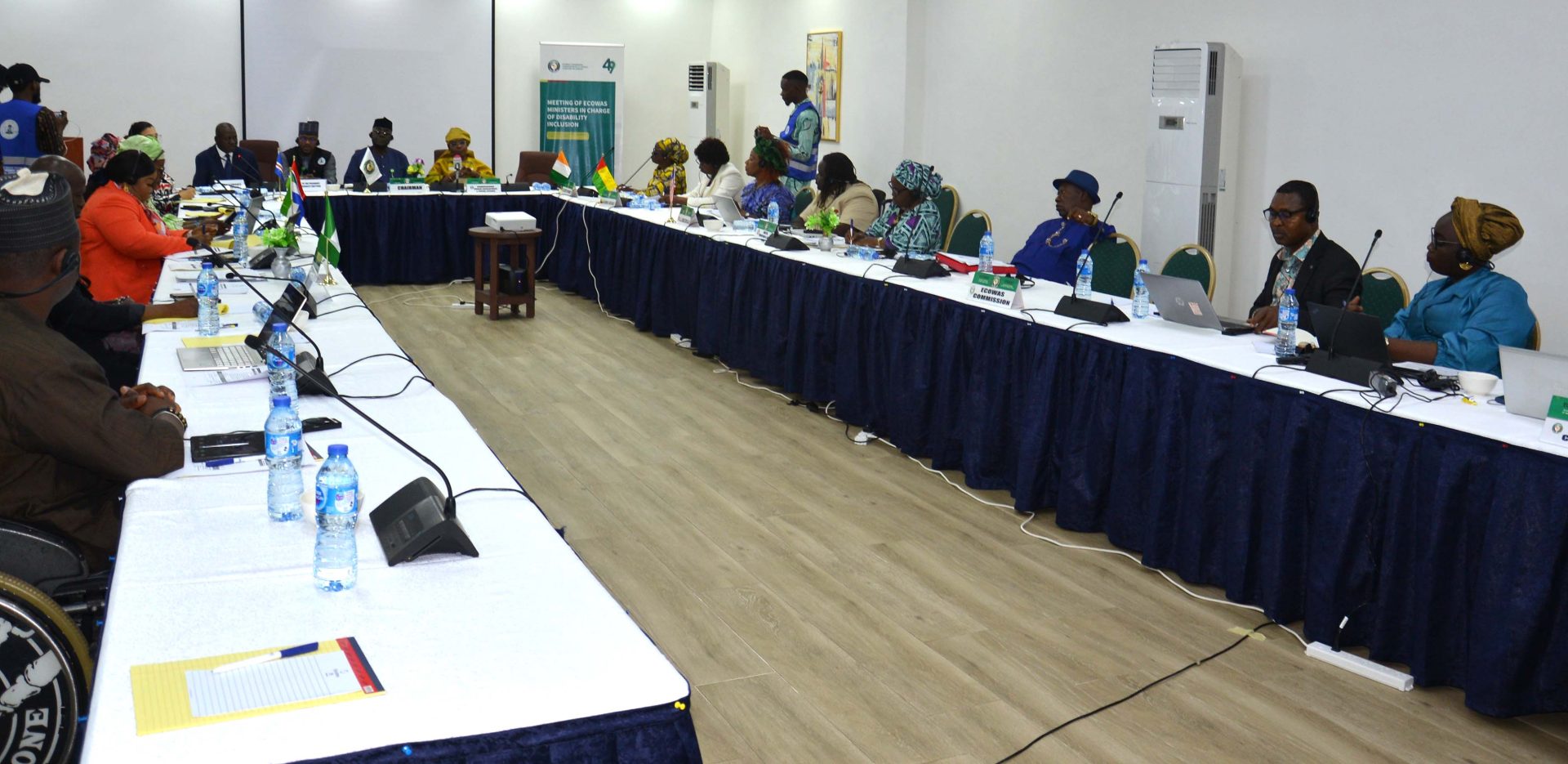ECOWAS Soon to Have an Action Plan on the Inclusion of People with Disabilities People In West Africa for The Period 2022-2030
06 Jun, 2024Nearly 15% of the world’s population, or more than a billion people, live with a disability, and 80% of these live in developing countries. In West Africa, there are estimated to be more than 60 million disabled people.
Yatma Fall, President of the West African Federation of People with Disabilities, gave these figures from a world report on disability produced jointly by the World Health Organisation and the World Bank.
He was speaking at the opening of the 1st meeting of Ministers of the Member States of the Economic Community of West African States (Ecowas) responsible for people with disabilities, held in Abuja, Nigeria, on Wednesday 5 June 2024.
According to Mr Fall, the way in which disability and people with disabilities are viewed is generally lacklustre, which exacerbates discrimination and marginalisation.
He outlined the main difficulties faced by people with disabilities, in particular those relating to access to health and rehabilitation services, education and training, employment and integration, as well as the development of the general living environment and accessibility.
“Despite the ratification of international legal instruments by our States and the adoption of national legislation, our governments have not yet made disability a development priority, which often results in non-inclusive public policies,” he said.
He expressed his gratitude to the ECOWAS Commission for its commitment to the well-being of people with disabilities and reiterated his willingness to support it in the adoption and implementation of the regional action plan to be validated.
Professor Fatou Sow Sarr, ECOWAS Commissioner for Human Development and Social Affairs, expressed her delight that ECOWAS was the first of Africa’s Regional Economic Communities to have a regional action plan on the inclusion of people with disabilities.
She called for increased regional investment in the inclusion of people with disabilities, recalling its dual role as a fundamental human right and an economic necessity capable of raising the standard of living of West African citizens.
She recalled the constant progress made by ECOWAS Member States, such as the statistical data on disability, the ratification of international instruments on the inclusion of disability, the protection of the rights of women and children with disabilities, and the existence of inclusive policies and plans.
In the same vein, the Senior Special Adviser to the President of Nigeria on Special Needs and Equal Opportunities, Mohammed Abah Issa, and the Permanent Secretary of the Nigerian Ministry of Humanitarian Affairs and Poverty Alleviation, Abel Olumuyiwa Enitan, recalled the ratification of international legal instruments as well as the adoption of national legislation and several measures aimed at reducing inequalities and promoting the rights of people with disabilities in Nigeria.
It should be noted that the main objective of this hybrid meeting is to enable the Ministers of ECOWAS Member States responsible for people with disabilities to validate the action plan on the inclusion of people with disabilities in West Africa, with a view to its recommendation to the ECOWAS Council of Ministers for adoption.
For Abel Olumuyiwa Enitan, this action plan will guide the said States in the design, implementation, monitoring and evaluation of national programmes for the inclusion of people with disabilities.
The Action Plan covers the period 2022-2030 and three main priority action areas aimed at further strengthening the inclusion of disability in the ECOWAS region.
These are: improving the inclusion of disability across all aspects of the work of the ECOWAS Commission; improving the legal and policy environment for the inclusion of people with disabilities; and strengthening regional partnerships to increase the mobilisation of resources for the inclusion of people with disabilities.





